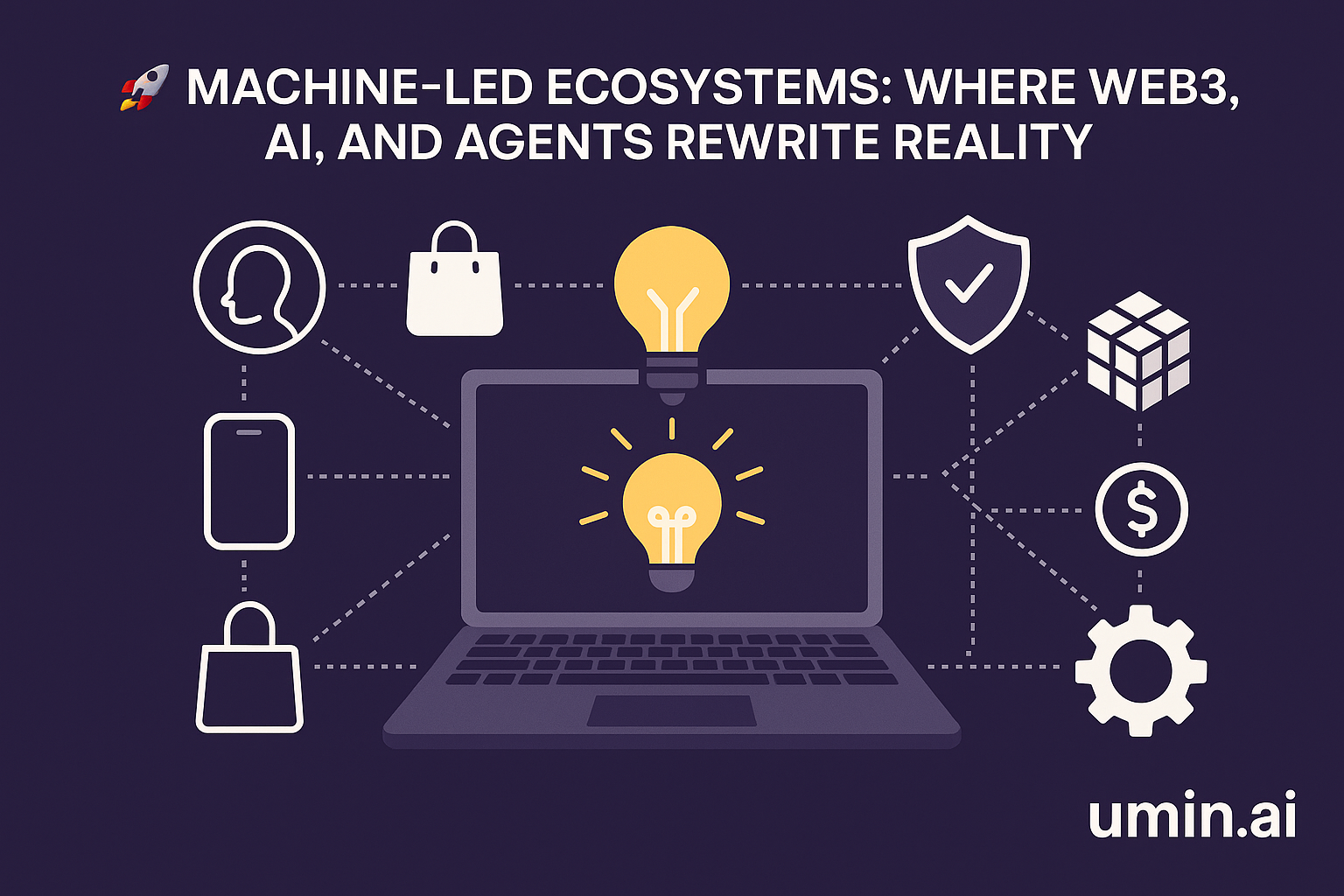
uminai Blog
MCP for Everyone to build and to own

Secure, Immutable AI Interactions in the Web3 Era
1 Why We Needed a “Model Context Protocol”
Large language models (LLMs) changed the way we write code, draft e-mails, and even design hardware. But until recently, an LLM could talk about your world without ever touching it.
MCP (Model Context Protocol) fixes that by letting an AI securely:
- See structured context (sensor feeds, user prefs, DID credentials).
- Pick the right tool to call (database query, robot arm, payment API).
- Execute that tool, inspect the result, and decide the next step.
In short, the protocol turns a chatty model into an agent—all while keeping every action auditable and tamper-proof on Web3 rails.
2 How MCP Works
| Stage | What the LLM Gets | What It Does |
|---|---|---|
| Context | JSON blob: user, location, telemetry | Reads the state of the world |
| Tools | List of function contracts | Chooses one & supplies args |
| Events | Streaming updates | Iterates until the task is done |
Because the contracts are self-describing, any compliant model—OpenAI GPT-4o, local Ollama LLaMA, Anthropic Claude, etc.—can reason about them without bespoke glue code.
3 Security, Web3, and Immutability
Blockchains aren’t just about tokens; they’re global append-only ledgers. MCP can log each tool invocation hash-for-hash onto chains like Ethereum or Cosmos SDK sidechains:
- Replay protection – every action gets a nonce and a signature.
- Regulatory audits – verifiable, time-stamped trails for ESG, HIPAA, or MiCA.
- Off-chain privacy – only the proof lives on-chain; the payload stays in your vault.

4 Real-Life Use Cases
- Smart Supply Chains – A pallet’s DID passport triggers an MCP “temperatureCheck” tool; the hash is anchored on-chain so regulators can’t dispute it later.
- Finance & DeFi – GPT-4o reads an on-chain price feed, calls a
swap()tool, and posts the signed transaction—human only clicks “Approve.” - Healthcare Robotics – A surgical robot’s movement plan is double-checked by an LLM that calls a
collisionDetect()tool, then logs the clearance proof. - Consumer IoT – Your dishwasher exposes
orderDetergent(); the AI agent schedules a DAO-governed purchase when price dips below $0.20 per pod. - Creative Workflows – Designers in Figma chat “Generate alt-text for every image”; MCP routes batch jobs to a local LLaMA instance—no assets leave the studio.
5 LLMs + MCP + Web3 ≈ Trustable Automation
| Pillar | Benefit |
|---|---|
| LLMs | Flexible reasoning & natural language |
| MCP | Standard tool schema & context flow |
| Blockchain | Immutable audit, payments, identity |
Together they let you build trustable, autonomous systems—robots that explain themselves, financial bots that self-prove compliance, and supply chains you can literally query in plain English.
6 Getting Started
- Spin up a free MCP server (
uv pip install mcp-server). - Add a simple tool contract—e.g.,
getWeather(lat, lon). - Point your favourite LLM (GPT-4o or local) at the server URL.
- Watch the agent choose the tool, call it, and return JSON.
Want a GUI? Try Cline, Cursor, AIaW, or Cherry Studio—they all browse, load, and execute MCP tools out of the box.
7 Looking to the Future
- On-device GPTs will call MCP tools without ever touching the cloud.
- DAO-governed fleets of delivery drones will negotiate tasks peer-to-peer.
- Regenerative supply chains will auto-generate carbon proofs at the SKU level.
The takeaway: MCP turns AI chatter into verifiable action—and in a Web3 world, that’s the difference between a neat demo and real-world impact.
Curious? Start building tools that bring your products—and the planet—one step closer to intelligence.